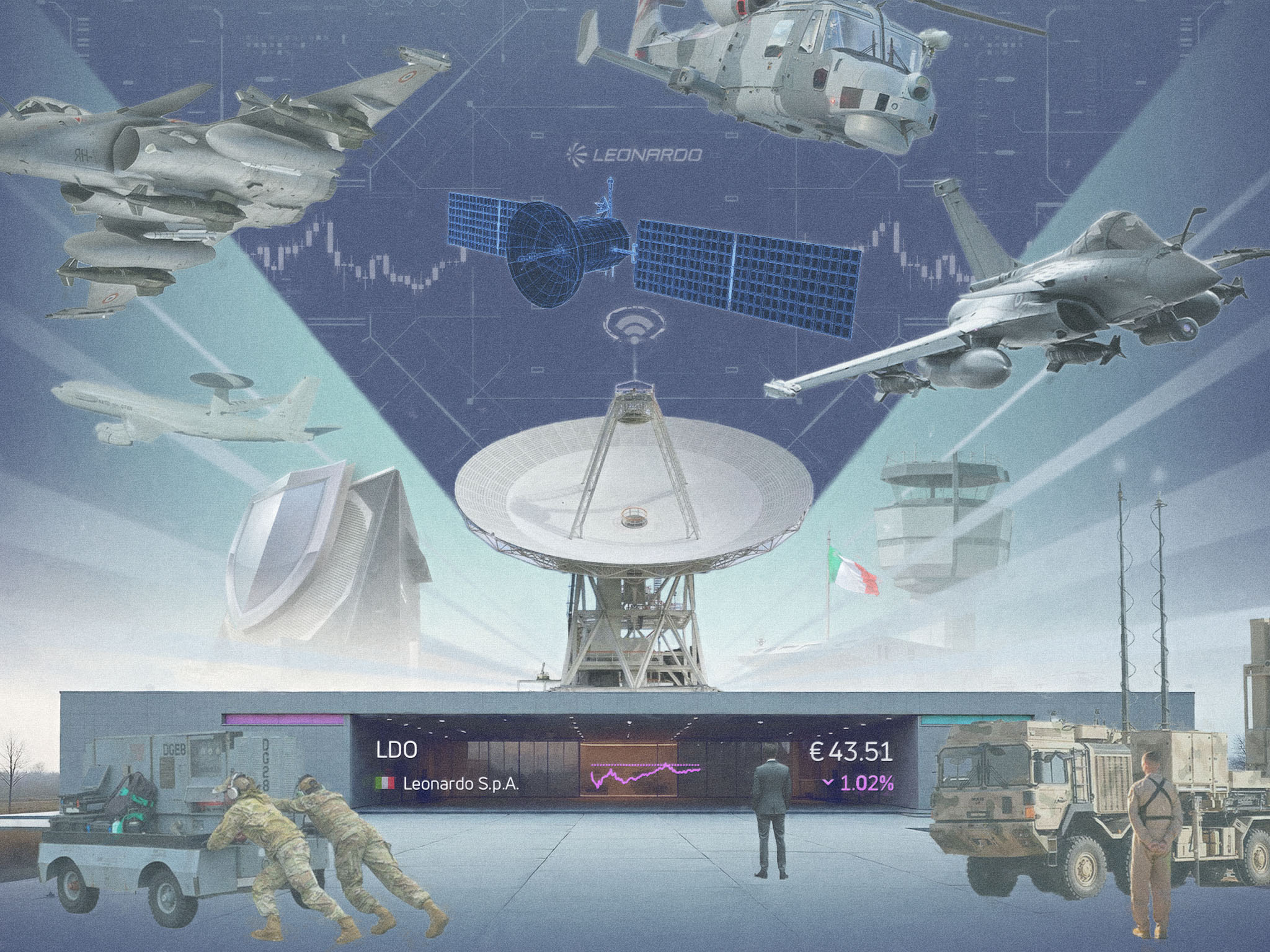Leonardo S.p.A (CBOE: LDO) wants to launch the ‘Made in Italy’ stamp into outer space

Giorgia Meloni’s well-known friendship with Elon Musk turned into a flash point earlier this year, with the Italian Prime Minister forced to defend talks with SpaceX over a potential Starlink contract for telecoms security worth $1.6 billion. While she bemoaned at the time that there were no viable public alternatives, Italy’s biggest defense firm—Leonardo S.p.A (CBOE: LDO)—is now trying to step up.
The company on Tuesday unveiled plans for a new space division and said it will launch 18 military and 20 civil satellites into orbit by the end of 2028 at a cost of nearly $1.5 billion. Leonardo, along with fellow European defense firms Airbus (CBOE: AIR) and Thales (CBOE: HO), had already been exploring a joint venture to compete with Starlink in producing low Earth orbit satellites for telecommunications.
The development is significant as it unites two narratives that have been stirring markets as of late: a mad rush into space that has blasted up shares of US firms like Rocket Lab (NASDAQ: RKLB) and AST SpaceMobile (NASDAQ: ASTS), and a realigning world order that has boosted European defense firms amid pressure from the US to increase military spending alongside the simultaneous threat of tariffs.
“The geopolitical situation is very complex, and this is a way to accelerate development and to make the continent much safer than in the past,” Leonardo CEO Roberto Cingolani said at an event where he detailed the plans and added that the global space market was growing at an annual rate of 7%. “There is increasing demand for end-to-end satellite services all around the world in many different fields, from climatology to agriculture to observation, infrastructure monitoring, and of course security and military applications.”
Cingolani said that the company wants to add cloud computing capabilities into its satellite network, putting both storage and computational capability into orbit. “This is not going to be a small isolated constellation, but will be interacting and interconnected to any other constellation that could collaborate with us,” he continued.
The race ahead
Taking on Starlink, of course, will be no easy feat. The constellation already includes more than 7,000 satellites that beam high-speed internet to 4 million customers, and there are plans that could see the network rise to as many as 42,000 satellites. There’s also existing competition from Europe, with Eutelsat’s (OTC: EUTLF) OneWeb providing broadband coverage with nearly 650 satellites in low Earth orbit. That company’s shares have surged 378% over the past month amid reports that it could replace Starlink in Ukraine, demonstrating once again the gyrations that can occur as Europe considers prioritizing homegrown firms for its defense.
Leonardo shares, meanwhile, have gained 55% over the past month amid the ongoing geopolitical tensions, with Thales rising 59%. SpaceX doesn’t trade publicly, which means investors looking for pure space plays have to turn to companies like Rocket Lab or AST SpaceMobile. Neither of those US firms has seen the momentum enjoyed by their European counterparts so far in 2025, although they’re up 325% and 842%, respectively, over the past year. Highlighting just how much optimism exists about the sector—whether it be American or European—McKinsey & Company expects the global space market to grow to $1.8 trillion by 2035.
Amid the broader global realignment boosting some companies as leaders prioritize domestic and regional production, there’s an interesting twist worth noting: Leonardo may be Italy’s seventh-largest company, but foreign investors—primarily North Americans—own the biggest stake. Europe’s push for defense sovereignty, in other words, is proving highly lucrative for its American shareholders. While nation-states bicker over borders, the market already knows that the real race ahead will transcend them.
